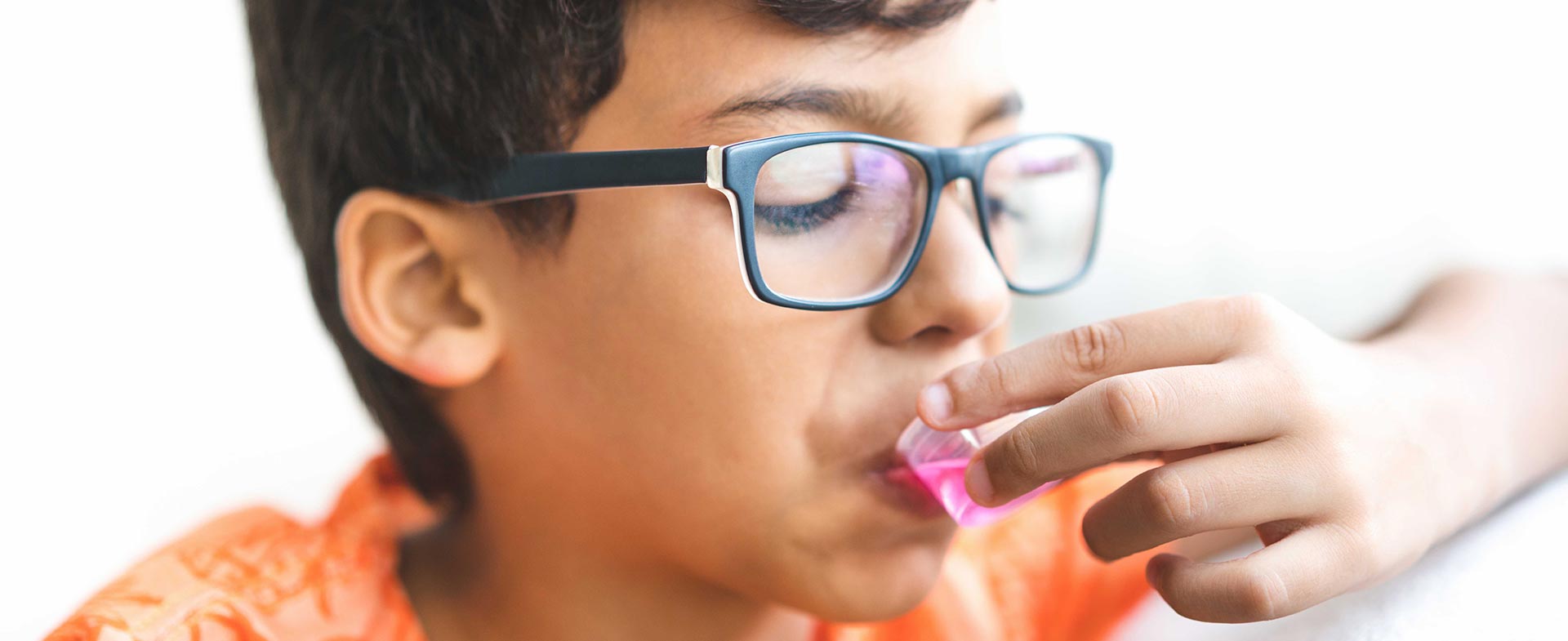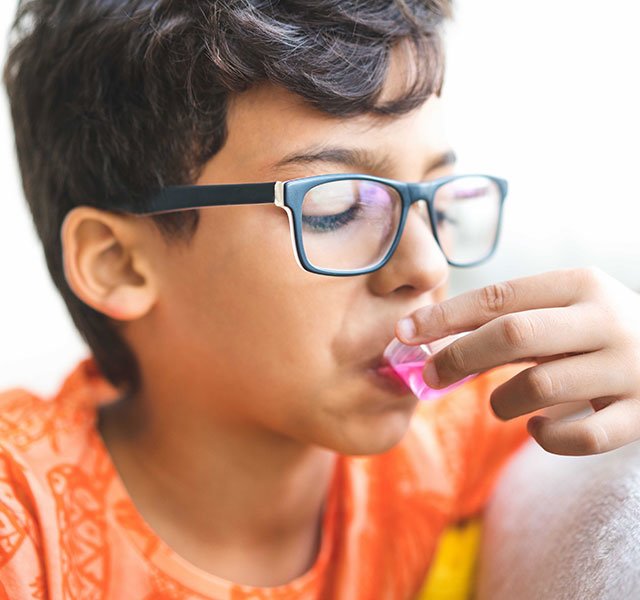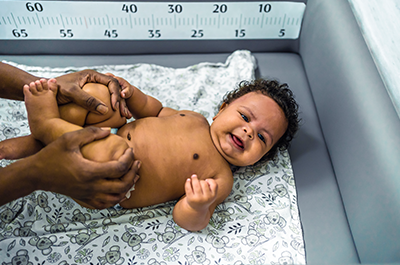When your child gets sick, it’s natural to want to act fast to stop the suffering and halt the spread of the illness through the family.
The obvious solution for most situations: Antibiotics. But not all illnesses require antibiotics. In fact, antibiotics are useless against two of the most common ailments during the winter months — cold and flu.
FAQ: Antibiotics
In 2015, the most recent year that data was available, doctors wrote more than 60 million antibiotic prescriptions for kids under age 19. But according to the Centers for Disease Control and Prevention (CDC), nearly 30 percent of these prescriptions were unnecessary. Here are answers to some frequently asked questions about antibiotic use in kids.
Q: What’s the harm in using antibiotics?
A: Every medication has side effects. In the case of antibiotics, side effects range from digestive dilemmas (nausea, vomiting and diarrhea) to rashes and fungal infections (such as yeast). Antibiotics work by killing bacteria, which is critical when someone has a bacterial infection. The problem is, they kill off good bacteria along with the bad and that can increase a child’s risk of developing other infections, including a serious infection called Clostridium difficile (C. difficile or C. diff). Even more concerning, excessive antibiotic use can lead to drug resistance, meaning antibiotics are no longer effective against common childhood illnesses such as pneumonia and ear infections.
Q: What impact do antibiotics have on the gut?
A: When children take antibiotics, the good bacteria in their guts may take a hit. While kids’ bodies are remarkably effective at restoring beneficial bacteria, your child may experience tummy troubles while they’re taking the medication. If your child is suffering from diarrhea while taking antibiotics, don’t stop treatment. Call your child’s pediatrician to determine next steps. In some cases, the doctor may change your child’s dose or medication.
Q: What should I do with leftover antibiotics?
A: In an ideal world, you shouldn’t have any leftover medication. Make sure your child completes the full course. If your pediatrician discontinues your child’s dose, throw away any remaining medication. A recent survey of 500 parents reported that nearly half held on to leftover antibiotics. What’s worse, 73 percent used those drugs on a different child for a different ailment. It’s also important to note that antibiotics may lose their effectiveness over time. So, if you use them months after they were prescribed, they may not provide complete coverage.
Q: Why can’t you use antibiotics on a different child who presents with similar symptoms?
A: Doctors dose antibiotics in kids by weight. So, if you use an antibiotic prescribed for your 4-year-old on your 8-year-old, the dose will be way off. Even more concerning, the second child may not need antibiotics, may need more than what you have left over or may be allergic to the antibiotic prescribed for the first child.
Q: Can kids be allergic to antibiotics?
A: Yes! If you’re concerned about allergies, talk to your child’s physician. Your doctor may recommend testing your child for an allergy prior to prescribing medication.
Q: What can you do when your child is sick, but antibiotics are not the right fix?
A: Get back to basics. Make sure your child rests and drinks plenty of fluids. Simple fixes, such as cough drops, honey, hot tea and homemade chicken soup can go a long way toward helping your child feel better. Your doctor may also suggest over-the-counter medications to treat cold symptoms. If your child is experiencing stomach ailments, such as diarrhea, probiotics may help replenish the good bacteria in the gut.
Staying Well
When it comes to prescription medications — antibiotics or any other type — it’s important to complete the full course and take drugs as prescribed.
Staying well can be tough this time of year, especially when you have children. The best way to protect your family:
- Wash your hands. Good hand-washing is still the most effective tool to prevent the spread of infection. Wash hands with soap and warm water for a full 20-seconds — long enough to sing the “Happy Birthday” song twice.
- Keep your distance. If your child, or another family member gets sick, try to keep them away from your other children. Don’t share cups and utensils. And make sure to wash your hands frequently.
- Be vigilant. If your child suffers from a prolonged fever (longer than three days), change in behavior or disabling symptoms that interrupt activities of daily living, contact your doctor.
Most illnesses are viral, not bacterial, and don’t require antibiotics. Always take your child to see a doctor before giving prescription medication. If your child has a viral illness, it may be a full week or even 10 days before he or she is back to normal.
Be patient. Symptoms will gradually resolve over time. But don’t hesitate to contact your doctor if you’re concerned. Your child deserves the best care. Sometimes that requires more than the basics.
To find a pediatrician at Henry Ford, visit henryford.com or call 1-800-HENRYFORD (436-7936).



